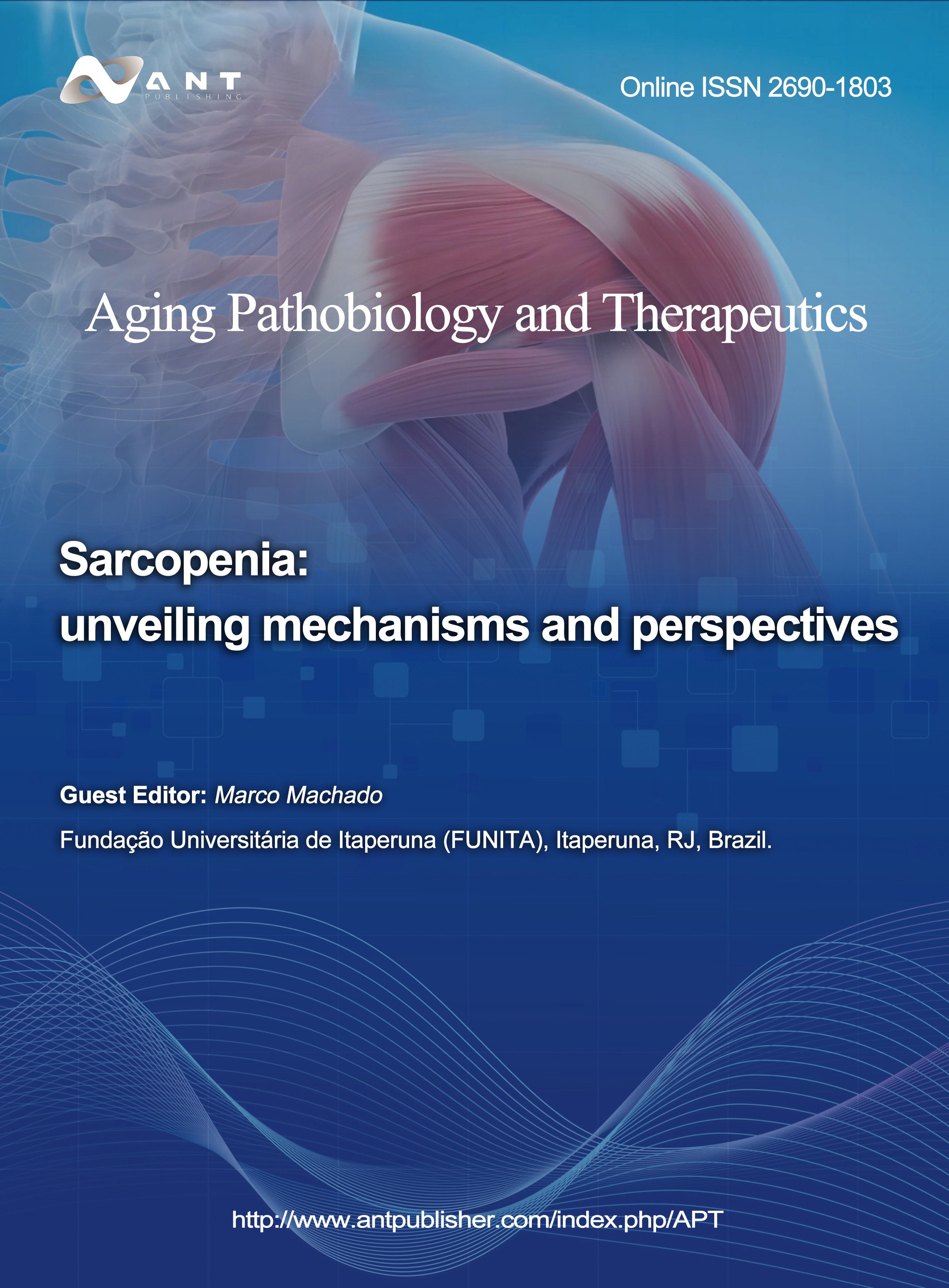Posted On 2023-11-24
 |
Guest Editor: Dr. Marco MachadoAssistant Professor, Fundação Universitária de Itaperuna (FUNITA), Itaperuna, RJ, Brazil.Email: marcomachado1@gmail.comWebsite: https://orcid.org/0000-0001-6364-6798 |
 |
Introduction
Sarcopenia, officially recognized as a disease by the World Health Organization (ICD-10M62.84) since 2016, is characterized by progressive muscle mass and strength loss, leading to adverse outcomes like falls, fractures, frailty, and increased mortality. The mechanisms behind sarcopenia are complex, involving neural decline, hormonal changes, reduced satellite cell function, malnutrition, chronic low-grade inflammation, mitochondrial dysfunction, and sedentary behavior. Treatment involves non-drug and drug-based interventions, but a consensus on a specific drug is lacking. Muscles are recognized as endocrine organs, releasing myokines influencing neurons, adipocytes, leukocytes, and hepatocytes. Muscle mass decline disrupts the neuro-immuno-endocrine balance, resulting in chronic low-grade inflammation, diminished neurogenesis, and decreased anti-inflammatory factor synthesis. Lifestyle interventions, such as regular exercise and a balanced diet, are crucial for managing sarcopenia, contributing not only to muscular hypertrophy but also to maintaining skeletal system metabolic equilibrium. We welcome research biomarks, uncovering novel interventions, diagnostic paradigms, and broader implications. We also expect studies highlighting the interconnected nature of Sarcopenia with other facets of aging physiology. Consideration of related topics, such as metabolic health, inflammation, and the role of physical activity in mitigating these conditions, will enrich the discourse as well.
Prof. Marco Machado
Guest Editor
Manuscript Submission Information
Manuscripts should be submitted online at www.antpublisher.com through the online submission system. Once you are registered, click here to go to the submission form. Manuscripts can be submitted until the deadline. All papers will be peer-reviewed. Accepted papers will be published continuously in the journal (as soon as accepted) and will be listed together on the special issue website. Research articles, Review articles as well as Therapeutic Brief are invited. For planned papers, a title and short abstract (about 100 words) can be sent to the Editorial Office for announcement on this website.
Submitted manuscripts should not have been published previously, nor be under consideration for publication elsewhere (except conference proceedings papers). All manuscripts are thoroughly refereed through a single-blind peer-review process. A guide for authors and other relevant information for submission of manuscripts is available on the Instructions for Authors page. APT is an international peer-reviewed open access quarterly journal published by ANT.
Please visit the Instructions for Authors page before submitting a manuscript. Considering limited grants for some researchers, Dr. Marco Machado and the editorial office made the decision that Article Processing Charges will be fully exempted, which means that there is NOT any manuscript processing or publication fees for your article once accepted after standard peer-review.
Submission Deadline
July 31, 2025
Participants
Contacts
Alan Zhou, Assistant Editor, apt_alanzhou@antpublisher.com
Updated on Nov 24, 2023